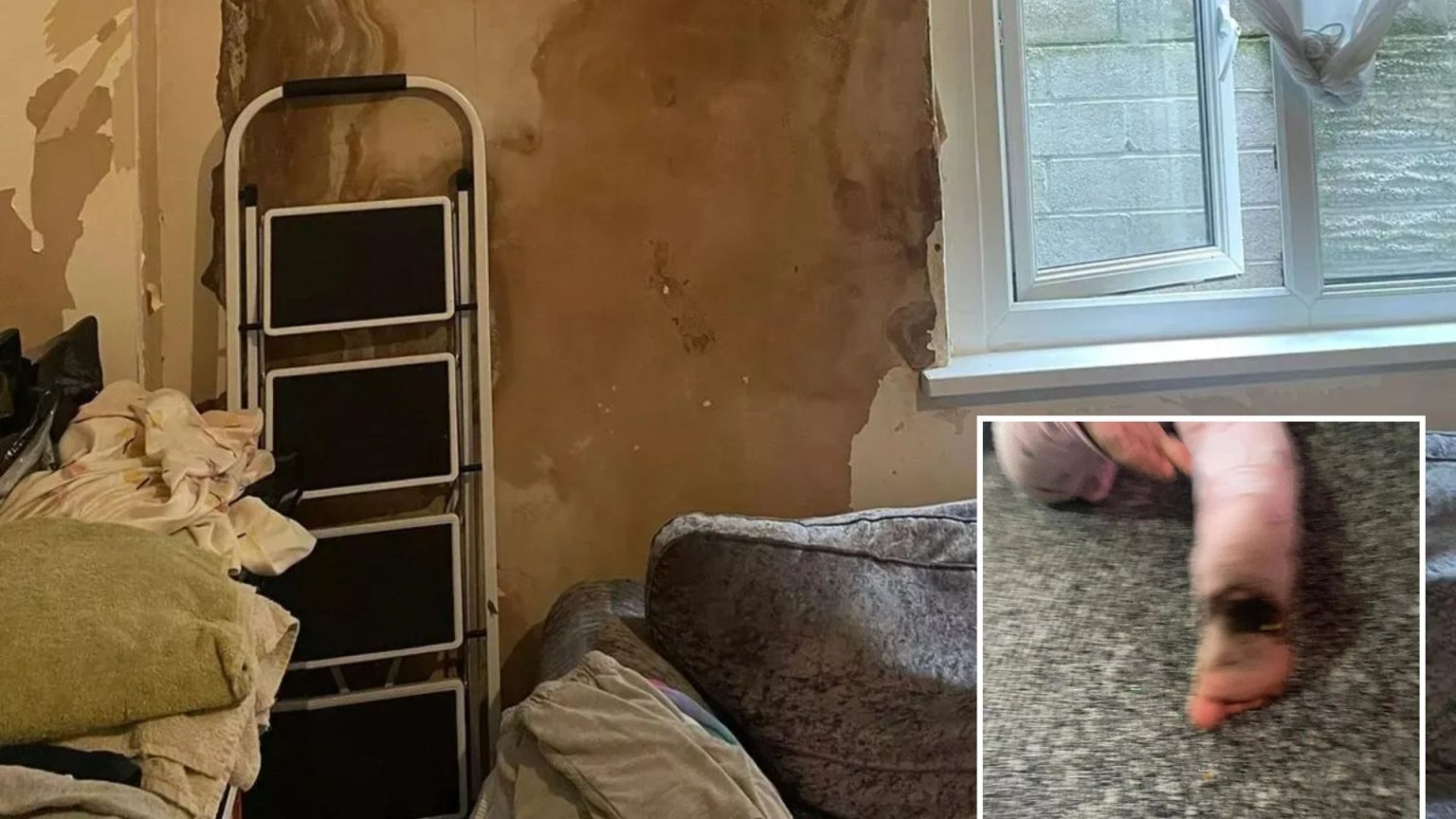A family of eight, including seven children under the age of 16, resides in a Cardiff council house plagued by severe dampness and mould infestation, leading to significant health concerns, particularly for a two-year-old toddler who has developed black mould on her skin. The mother, who wishes to remain anonymous, describes a dire living situation where water runs down the walls, rooms are riddled with damp and mould, and slugs are a constant presence. The family is confined to a single room due to the pervasive nature of the problem. The children are unable to play in the garden due to rat infestations from a nearby food establishment and are also prevented from playing in the front due to the dangers of a busy main road. The constant presence of mould has led to recurring illnesses among the children, and the mother expresses constant fear for their well-being, particularly her toddler who has even tried putting slugs in her mouth.
The severity of the mould issue has prompted a Consultant Neonatologist at Cardiff and Vale Health Board to write to the local authority, urging a review of the family’s living situation. The consultant expressed concern about the detrimental impact of the living conditions on the children’s health, particularly the two-year-old, who was born prematurely and has a history of seizures triggered by viral illnesses. The consultant emphasized the heightened risk posed by the damp and mould, especially as winter approaches. In February, the toddler experienced a seizure requiring intensive care at the University Hospital of Wales, and the medical professionals linked the seizure to the child’s susceptibility to infections exacerbated by the mouldy environment. The family fears that the unhealthy living conditions will lead to further health complications, possibly even more severe seizures.
Despite the mother’s persistent calls to Cardiff Council and the medical professional’s intervention, the family’s pleas for assistance have largely been ignored. The mother reports contacting the council daily, but little action has been taken to address the issues. She fears that her daughter’s condition will worsen, potentially leading to serious illness or even death, before the council takes adequate action. The family moved into the property in May of the previous year, and since then, the children’s school attendance has dropped to 60% due to persistent coughs and colds. The children are also embarrassed to invite friends over due to the appalling state of their home.
The mould infestation renders wardrobes unusable, forcing the family to pile clothes on the floor. The continuous presence of slugs necessitates constant laundry, placing a significant financial burden on the family. Despite being allocated a larger property due to their family size, the mother expresses her willingness to move into even a one-bedroom flat to escape the current hazardous living conditions. The pervasive slug problem makes it difficult to even find a space to sit comfortably. The family’s sleeping arrangements have also been impacted, with three children sharing the mother’s bed and the remaining children split between two other rooms.
Following a break-in during the summer, where a man entered through one of the girls’ windows, the children have been traumatized and are now afraid to sleep alone. The council advised the family to keep the windows closed due to the busy main road outside, but this exacerbates the damp and mould problem, creating a catch-22 situation. The mother acknowledges the toll the situation is taking on her own health but emphasizes her commitment to prioritize her children’s well-being. Despite the urgency of their situation, the family has been informed by the council that it is a “waiting game” for alternative accommodation.
Cardiff Council, in response to the media, stated that they treat reports of damp and mould seriously and have established a dedicated team to address these issues. While claiming to prioritize swift responses, the council has said they were unable to access the property for a damp inspection, and scheduled repair work has been refused. The council maintains that once granted access, they will undertake necessary repairs, including installing new double glazing, applying mould treatment, improving ventilation, and repainting/wallpapering affected walls. The council also addressed the pest control issue, indicating that treatments were carried out during the summer and more can be arranged if needed. They also pledged to inspect and seal any entry points for pests once access to the property is granted.
The conflicting accounts presented by the family and the council highlight a breakdown in communication and a lack of effective action to address a serious health hazard. The family’s desperation is palpable, while the council’s response appears bureaucratic and inadequate. The case underscores the critical need for swift intervention and effective solutions to protect vulnerable families from the dangers of substandard housing. The family’s plight raises serious questions about the adequacy of the council’s response to hazardous living conditions and the effectiveness of their processes in prioritizing the health and well-being of their tenants. The continued exposure to damp and mould poses a significant and ongoing risk to the family’s health, particularly the vulnerable toddler.











